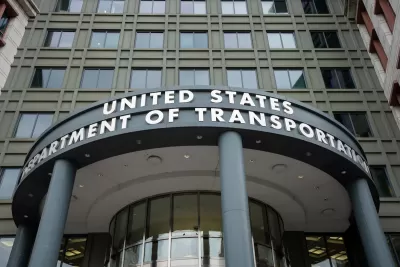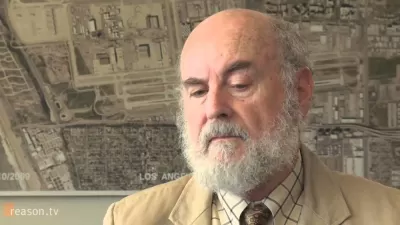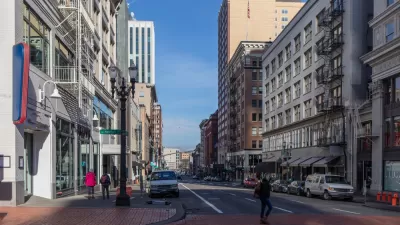USDOT employees, who are required to go back to the office, will receive free parking at the agency’s D.C. offices — flying in the face of a growing research body that calls for pricing parking at its real value.

In a nod to the late, great Donald Shoup, Kea Wilson argues that the U.S. Department of Transportation’s free parking initiative will “encourage driving by employees who otherwise would take transit — and inflict more congestion, emissions, and traffic violence on surrounding communities.”
Parking spots at the USDOT’s Washington office that once cost $155 per month will now be free and distributed through an annual lottery — including spaces once reserved for people with disabilities, carpoolers, and people who use their vehicles for work. “That policy, which may violate federal law, also runs runs counter to the District's own policies to encourage more sustainable commuting and curb the deleterious effects of cars in the nation's dense, transit-rich nation's capital,” Wilson asserts.
According to Daniel Herriges of the Parking Reform Network, “There are a handful of places in North America that basically would cease to function if everybody who works there drove in every day ... and I would say that the core of Washington, D.C. is absolutely one of those places.”
Although a 2022 law mandates that D.C. employers with over 20 employees provide parking cash-outs to employees who don’t drive to work, companies and organizations with their own parking lots, like USDOT, were exempt — “removing a powerful incentive for employers in transit-rich neighborhoods to stop offering parking to anyone and putting their lots to more productive use.”
FULL STORY: The High Cost of Free Parking: Duffy’s Parking Giveaway Will Cost the Rest of America

Manufactured Crisis: Losing the Nation’s Largest Source of Unsubsidized Affordable Housing
Manufactured housing communities have long been an affordable housing option for millions of people living in the U.S., but that affordability is disappearing rapidly. How did we get here?

Americans May Be Stuck — But Why?
Americans are moving a lot less than they once did, and that is a problem. While Yoni Applebaum, in his highly-publicized article Stuck, gets the reasons badly wrong, it's still important to ask: why are we moving so much less than before?

Using Old Oil and Gas Wells for Green Energy Storage
Penn State researchers have found that repurposing abandoned oil and gas wells for geothermal-assisted compressed-air energy storage can boost efficiency, reduce environmental risks, and support clean energy and job transitions.

Minneapolis Bans Rent-Setting Software
Four cities have enacted restrictions on algorithmic software that can inflate rent costs.

Oakland to Add 244 New EV Chargers
Oakland plans to launch its new charging network at eight locations by the end of 2025.

Jane Goodall Inspires with Message of Hope, Resilience, and Environmental Action
Speaking in Pasadena, Jane Goodall offered a hopeful and inspirational message, urging global compassion, environmental responsibility, and the power of individual action to shape a better future.
Urban Design for Planners 1: Software Tools
This six-course series explores essential urban design concepts using open source software and equips planners with the tools they need to participate fully in the urban design process.
Planning for Universal Design
Learn the tools for implementing Universal Design in planning regulations.
Heyer Gruel & Associates PA
City of Moreno Valley
Institute for Housing and Urban Development Studies (IHS)
City of Grandview
Harvard GSD Executive Education
Salt Lake City
NYU Wagner Graduate School of Public Service
City of Cambridge, Maryland




























